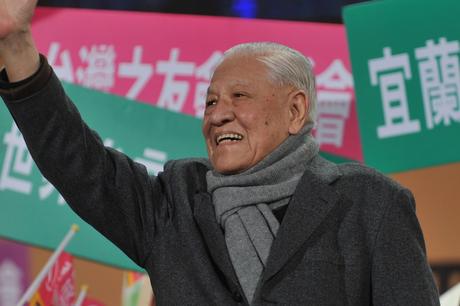
(Taipei) Former Taiwanese President Lee Teng-hui, referred to as “Mr. Democracy” for his role in the political transition on this island, died Thursday at the age of 97 years, announced the hospital where he was being treated.
Posted on 30 July 2020 at 15 h 14 Updated to 15 h 49
France Media Agency
Recognized as having been one of the architects of the transformation of Taiwan into a free and modern country after decades of dictatorship, he was president of 1987 at 2000.
He had become a leading figure in the movement to have this island recognized as a sovereign state on the international scene.
“Lee helped end decades of authoritarianism and ushered in a new era of economic prosperity, openness and the rule of law,” said U.S. Foreign Minister Mike Pompeo in a press release, praising its “crucial role in transforming Taiwan into the exemplary democracy we know today”.
The former head of state was hospitalized in February after choking on food and suffering from chronic illnesses for several years.
Lee Teng-hui died of “septic shock and multiple organ failure despite the medical team's efforts to revive him,” said the vice president of the Veterans General Hospital of Taipei in front of the press.
Born in Taiwan in 1923, he studied in Japan, where his island was a colony for 50 years until 1923, after the end of the Pacific War.
Taiwan was then returned to China, ruled at the time by Kuomintang (KMT) leader Tchang Kai-shek. Four years later, after losing the civil war to the Communists, Tchang Kai-shek fled to Taiwan where he set up a rival government, which he led with an iron fist until his death. dead in 1975.
Major political reforms
Lee, who became a professor of agricultural economics, was introduced to Tchang Kaï-shek's son, Chiang Ching-kuo, in the years 1970. When he became president after his father's death, Chiang Ching-kuo promoted Lee to several government posts.
Vice-president in 1975, he became four years later, after the death of Chiang Ching-kuo in 1988, the first president of Taiwan born on the island.
Chiang Ching-kuo had already lifted martial law in 1984, but it was Lee who led Taiwan's transition to democracy.
His government introduced sweeping political reforms, including the election of a new parliament and the presidential election by direct suffrage.
Despite threats from mainland China, he won a large electoral victory in 1988. China then fired ballistic missiles at the Taiwan Strait, hoping in vain to dissuade voters from voting for Lee and prompting the arrival in the region of US warships.
Lee ceded his post as chairman to Chen Shui-bian of the Progressive Democratic Party (DPP) in 2000 when the KMT lost the elections for the first time.
When Ma Ying-jeou of the KMT took over from Chen in 2008 and followed a policy of rapprochement with mainland China, Lee emerged as one critical voices of the pro-Beijing line.

